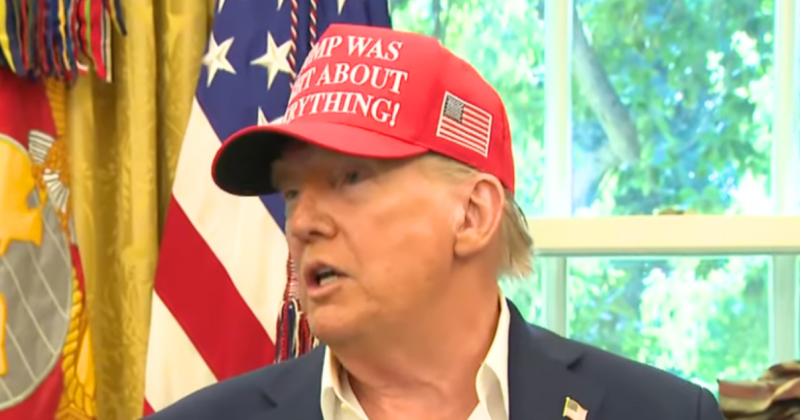President Donald Trump filed an emergency petition with the Supreme Court on Wednesday night, seeking immediate intervention to overturn a federal appeals court decision that declared most of his tariff policies illegal.
The petition arrives just five days after the U.S. Court of Appeals for the Federal Circuit delivered a devastating 7-4 ruling against the administration’s trade strategy.
The appeals court determined that Trump exceeded his presidential authority when implementing widespread tariffs affecting virtually every trading partner of the United States.
This judicial setback has placed a fundamental component of Trump’s economic policy in serious jeopardy, threatening the framework of his America First trade initiatives.
Trump’s legal team is requesting the Supreme Court schedule oral arguments for early November, seeking an expedited timeline that would produce a final ruling shortly thereafter.
Under normal circumstances, the Supreme Court would require until early summer to render such a consequential decision on presidential trade authority.
Treasury Secretary Scott Bessent submitted a formal declaration supporting Trump’s emergency petition to the nation’s highest court.
Bessent argued in his filing that the appeals court ruling “gravely undermines the President’s ability to conduct real-world diplomacy and his ability to protect the national security and economy of the United States.”
Trump’s legal briefs warn of severe economic consequences if the Supreme Court delays its decision until June 2026, CNBC reported.
The filing states that such delays “could result in a scenario in which $750 billion-$1 trillion in tariffs have already been collected, and unwinding them could cause significant disruption.”
The president implemented these controversial tariffs using the International Emergency Economic Powers Act, commonly known as IEEPA.
Trump invoked this emergency authority by declaring the United States’ federal trade deficit with other nations a matter of national security emergency. However, the Federal Circuit Court of Appeals rejected this legal foundation, ruling that “tariffs are a core Congressional power,” not a presidential prerogative.
The court emphasized that “the core Congressional power to impose taxes such as tariffs is vested exclusively in the legislative branch by the Constitution.”
The appeals court provided Trump a temporary reprieve by pausing the implementation of its ruling until October 14.
This delay gives the administration time to petition the Supreme Court and potentially secure an indefinite stay of the lower court’s decision.
Jeffrey Schwab, senior counsel at the Liberty Justice Center, represented the plaintiffs who successfully challenged the tariffs in federal court.
Schwab stated, “The government has now asked the U.S. Supreme Court to review this case. Both federal courts that considered the issue agreed that IEEPA does not give the President unchecked tariff authority.”
He expressed confidence that their legal arguments against what he termed the “Liberation Day” tariffs would ultimately succeed before the Supreme Court.
Schwab emphasized the immediate economic impact on American businesses, saying, “These unlawful tariffs are inflicting serious harm on small businesses and jeopardizing their survival.”
The Liberty Justice Center attorney concluded by expressing hope “for a prompt resolution of this case for our clients” who have suffered financial damages from the disputed trade policies.
The Supreme Court now faces a critical decision that will determine the scope of presidential trade authority and the future of Trump’s signature economic policies.

